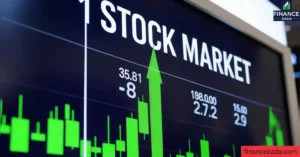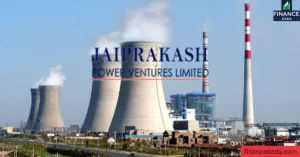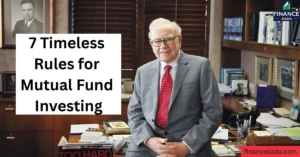Gensol Engineering Stock Plunges 94% from Peak: Shareholder Value Wiped Out Amid Governance Scandal
Gensol Engineering Ltd., once a promising player in the clean energy and electric vehicle (EV) sector, has become a cautionary tale for investors. The company’s stock has plummeted 94% from its peak of ₹1,124 in June 2024, trading at a mere ₹51.25 as of May 13, 2025. This catastrophic decline, marked by 48 losses in the last 50 trading sessions, including 18 consecutive lower circuits, follows serious allegations of financial misconduct and governance lapses. The Securities and Exchange Board of India (SEBI) interim order on April 15, 2025, and the subsequent resignations of promoters Anmol Singh Jaggi and Puneet Singh Jaggi have intensified the crisis. This article explores the factors behind this shareholder value erosion and its broader implications.

Unprecedented Stock Price Decline
Gensol Engineering’s stock has been in a freefall since early 2025, dropping from ₹580 to ₹51.25 in just 49 trading sessions. The stock has hit the 5% lower circuit limit for 18 straight sessions, with only two days of gains during this period. This marks the 23rd consecutive day of losses, reflecting a staggering 94% erosion in market value from its all-time high. The company’s market capitalization, once at ₹4,300 crore, has dwindled to approximately ₹194 crore, wiping out over ₹4,100 crore in shareholder wealth.
The stock’s placement in the ‘T’ group, with mandatory delivery and a 5% circuit limit, has restricted trading liquidity, trapping investors in a downward spiral. The decline accelerated after credit rating agencies ICRA and CARE downgraded Gensol’s debt to ‘D’ (default) status in March 2025, citing delays in debt servicing and governance concerns.
SEBI Interim Order and Promoter Resignations
On April 15, 2025, SEBI issued a 29-page interim order barring Gensol’s promoters, Anmol Singh Jaggi (Chairman and Managing Director) and Puneet Singh Jaggi (Whole-Time Director), from accessing capital markets and holding directorial or managerial roles in listed companies. The regulator accused the Jaggi brothers of treating Gensol as a “personal piggybank,” diverting funds for luxury purchases and related-party transactions.
Following the order, both promoters resigned on May 12, 2025, citing compliance with SEBI’s directives. Anmol Singh Jaggi, in his resignation letter, expressed gratitude to the board and employees but did not address the allegations. The resignations, coupled with the SEBI order, have further eroded investor confidence. Arun Menon, an independent director, also resigned, noting he had raised concerns about the company’s debt as early as July 2024 but received no response from the promoters.
Financial Misconduct and Fund Diversion
SEBI’s investigation, triggered by a complaint in June 2024, uncovered a web of financial irregularities. Between FY22 and FY24, Gensol secured ₹977.75 crore in loans from the Indian Renewable Energy Development Agency (IREDA) and Power Finance Corporation (PFC), with ₹663.89 crore earmarked for purchasing 6,400 EVs. However, only 4,704 EVs, valued at ₹567.73 crore, were acquired, leaving ₹262.13 crore unaccounted for.
The probe revealed that funds were diverted to entities linked to the Jaggi brothers, including:
- ₹42.94 crore routed through Capbridge Ventures LLP for a luxury apartment in Gurgaon’s DLF Camellias.
- ₹25.76 crore used by Anmol Singh Jaggi for personal expenses, including a ₹26 lakh golf set and a ₹50 lakh investment in Third Unicorn Pvt. Ltd.
- ₹96.69 crore from a PFC loan transferred to entities like Capbridge and Gensol Consultants, controlled by the promoters.
SEBI also found evidence of circular transactions, such as ₹10 crore looped through four companies in a single day to create an illusion of business activity. The company submitted forged no-default certificates to credit rating agencies, misleading lenders and investors about its financial health. Additionally, a visit by NSE officials to Gensol’s Pune EV plant in April 2025 revealed no manufacturing activity, contradicting claims of 30,000 EV pre-orders.
Impact on Shareholders
With nearly 1.1 lakh retail shareholders as of March 31, 2025, the stock’s collapse has devastated investor portfolios. Retail shareholding rose to 23.44% by December 2024, while promoter holding dropped from 70.72% in FY20 to 35%, with 95.1% of promoter shares pledged. SEBI flagged the risk of further promoter stake dilution, potentially offloading shares to unsuspecting investors.
The stock’s 92.51% decline in 2025 has trapped investors, with analysts like Atul Parakh of Bigul recommending an exit due to heightened risks and governance red flags. The company’s placement under Enhanced Surveillance Measures (ESM) Stage-1 further limits trading opportunities, exacerbating shareholder losses.
Market Context and Regulatory Scrutiny
Gensol’s crisis unfolds amid heightened regulatory scrutiny of small- and mid-cap stocks in India. SEBI’s decision to halt Gensol’s proposed 1:10 stock split, announced to attract retail investors, reflects concerns about misleading corporate actions. The regulator has ordered a forensic audit of Gensol’s books, with a report due within six months, signaling potential further revelations.
The Ministry of Corporate Affairs is also reviewing SEBI’s findings, while IREDA has filed a complaint with the Economic Offences Wing, alleging unauthorized shareholding dilution by promoters. Reports of Enforcement Directorate (ED) probes into possible links to other financial irregularities have added to the uncertainty, though Gensol has not yet responded to these claims.
Future Implications
Gensol Engineering’s saga underscores the risks of weak corporate governance and unchecked promoter control. For investors, the sharp decline serves as a reminder to scrutinize promoter behavior, debt levels, and pledge status before investing. Avinash Gorakshkar of Profitmart Securities noted that the promoters’ stake reduction in Q4 FY25 was a red flag, urging investors to monitor bulk and block deals for early warning signs.
The ongoing forensic audit and regulatory actions will determine Gensol’s future. The company’s ambitious plans in solar EPC and EV leasing, once a draw for investors, are now overshadowed by financial and operational challenges. With debt rising to ₹1,045 crore in H1 FY25 and credit ratings in junk status, Gensol faces an uphill battle to restore credibility.
Conclusion
Gensol Engineering’s 94% stock price crash from its peak reflects a profound governance failure, with the Jaggi brothers’ alleged fund diversions costing shareholders dearly. SEBI’s interim order and the promoters’ resignations mark a critical juncture, but the damage to investor trust may be irreparable. As regulatory probes continue, investors are advised to exercise caution and prioritize companies with transparent governance and strong fundamentals to avoid similar wealth erosion.
Also Read: HAL Share Price Target 2025, 2030, 2035, 2040: Analysis & Forecast
BEL Share Price Target 2025, 2030, 2035, 2040: Analysis & Forecast









